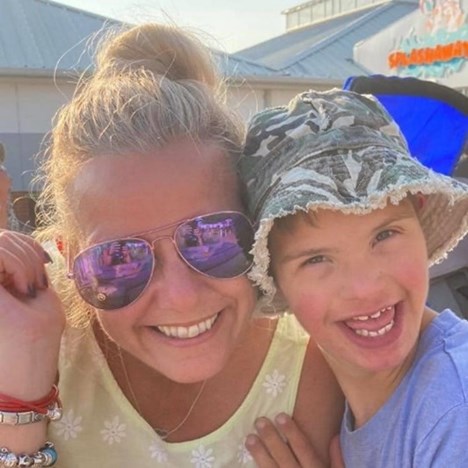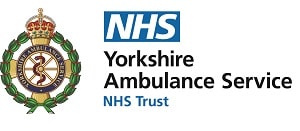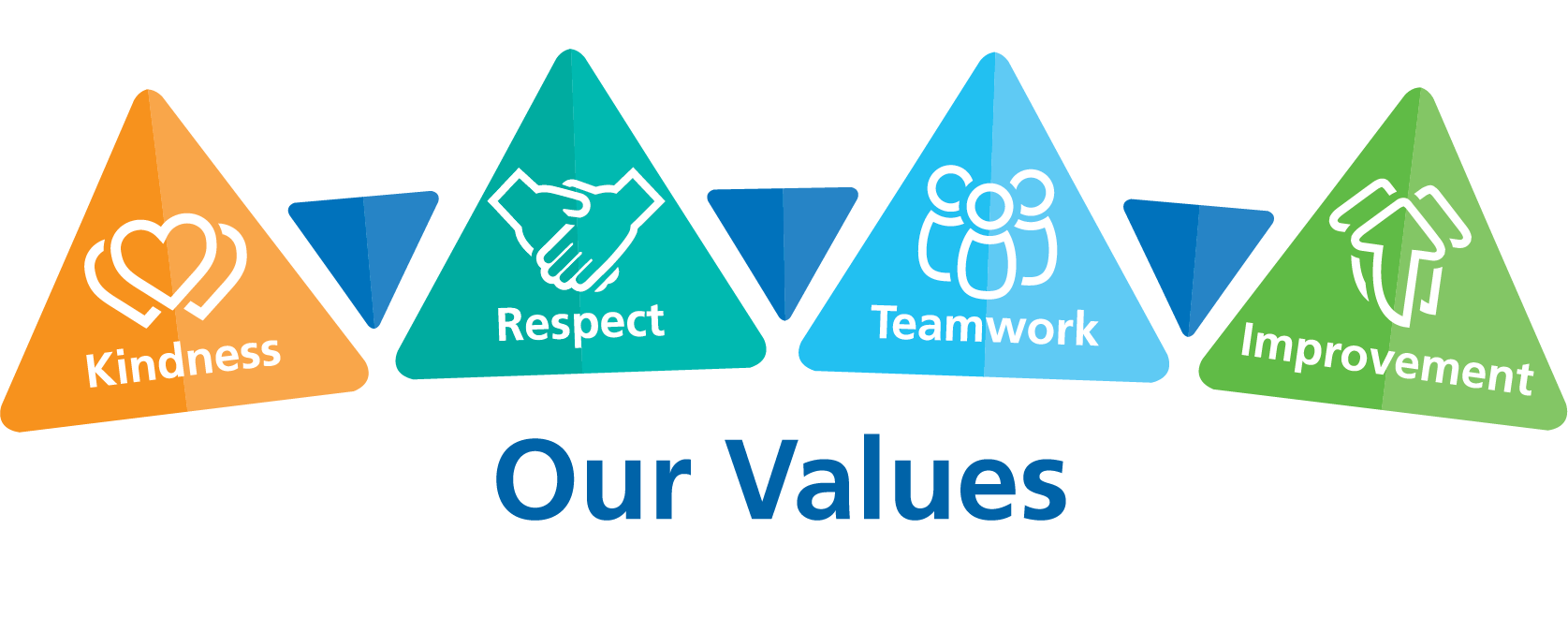Learning Disability Week
17 June 2022

Experts have got together to talk about how to improve communication between our staff and patients with learning disabilities.
The discussion between both professionals and those with lived experiences was captured for an audio bite which has been released to mark Learning Disability Week (20-26 June).
Cheryl Kennedy, YAS Area Clinical Governance Lead, spoke to Adelle Kennedy, Clinical Lead Speech and Language Therapist, Tees, Esk and Wear Valleys NHS Foundation Trust and Dr Liz Herrieven, Consultant in Paediatric Emergency Medicine, Sheffield Children's Hospital, and parent of child with learning disabilities and autism. She also spoke to Graham North, an expert by experience.
Cheryl highlighted how we can all help to improve the experience of patient with learning disability when using the ambulance service. There has been limited training and education on learning disabilities and autism, especially within the out-of-hospital environment. Our guests shared how we call all help by adapting our communication, enhancing engagement, building trust and recognising pain while looking out for common conditions experienced by this patient group and ‘increasing your awareness to improve their experience'.
Learning Disability Week also provides us with an opportunity to share updates and opportunities for learning.
It is a key focus of the Yorkshire Ambulance Service Trust Learning Group (TLG) to learn from the lives and deaths of people with a learning disability and autism, using the LeDeR review process. LeDeR is a service improvement programme for people with a learning disability and autism, which aims to improve care, reduce health inequalities and prevent early deaths.
A Learning Disabilities and Autism Awareness Task and Finish Group has been established which aims to highlight learning from incidents involving patients with learning disabilities and to look at what we need to do for our patients with learning disabilities and autism, and how we can improve their experiences.
A learning disability can be defined as meeting three core criteria (NICE):
- lower intellectual ability (usually an IQ of less than 70)
- significant impairment of social or adaptive functioning
- onset in childhood.
A learning disability:
- may be mild, moderate, sever or profound in severity.
- affects the way a person learns new things throughout their life.
- is different for everyone; no two people are the same.
- can cause difficulties with understanding complicated information, learning some skills, looking after themselves or living alone.
- are different from specific learning difficulties, such as dyslexia, which do not affect intellectual ability.
Did you know that people with a learning disability are three times more likely to die of a treatable illness and are likely to die 20 years earlier than the average person?
People with learning disabilities may not always be able to tell us as easily what is wrong with them.
We encourage staff, when they have had training, to ask to see their patient/hospital passport, sometimes called an ‘About me’ booklet.
A passport provides important information about a patient with a learning disability, including personal details, the type of medication they are taking, and any pre-existing health conditions. It also includes information about how a person communicates and their likes and dislikes, which can be very important when they have called an ambulance and are first admitted to hospital. This can include any communication aids and how they can be used so health staff can communicate clearly. They can also show how the person expresses things such as happiness, sadness, pain and discomfort.
We know that often it's important to use carers and relatives to support our assessment. 'Soft signs' can be used as indicators of early deterioration in condition; these might include lack of awareness, change in eating habits, change in mobility or a difference in their mood.
We also encourage our staff to:
Involve those closest to them
- Involve families and carers in assessments; they are the experts when it comes to their loved ones.
- Don’t be afraid to ask loved ones what is ‘normal’ for our patients or what they look and act like when they are well.
Adapt our communication style
- Ask what the right way is to communicate with your patient; use our pictorial charts if necessary or relay messages to family members to ensure you are being understood.
- Be patient and understanding when you assess someone with learning disabilities and remember that basic observations, such as using an SPO2 probe or a stethoscope, could cause pain or distress if they have sensory processing problems.
Maintain dignity and respect
- Be aware of ‘diagnostic overshadowing’. Consider each symptom on its own, not as something that is part of that person’s learning disability. Ask them and the people closest to them ‘What’s different today?’ before trying to assess them.
YAS Diversity and Inclusion Advisor Joanne Lancaster is mum of Toby who has a severe learning disability. Here she shares some of her healthcare experiences.
"Our son Toby has Down’s Syndrome and multiple complex needs. He is classed as having a severe learning disability. He was born in December 2006 and we had no prior knowledge of his diagnosis or multiple conditions prior to him being born. Life has been a rollercoaster of numerous health appointments, diagnoses and equipment; it’s been a steep learning curve for us as a family.
We are grateful to the NHS and healthcare staff who have saved Toby’s life on more than one occasion, they have monitored and cared for him, we’ve had access to appointments with many different specialists and been provided with specialist equipment to aid Toby with his day-to-day needs.
However, things have not always gone smoothly when we have been in a healthcare setting or tried to get appointments. Too often
 medics don’t listen to us as parents, who know him best, ignore what we say, only to realise we were right all along.
medics don’t listen to us as parents, who know him best, ignore what we say, only to realise we were right all along.
In a hospital setting we have to be Toby’s biggest advocate ensuring he receives the right care and at the right time. This is exhausting for us; we watch other parents read a magazine or go for a coffee while their child plays on a mobile device or watches TV yet we must be constantly by Toby’s bedside ensuring that he is safe, entertained and well cared for.
Sometimes a member of staff ‘just gets it’. One time when we were waiting in an extremely busy outpatient’s clinic one of the nurses could see how distressed Toby was getting at the noise volumes and located us to a quiet room to wait. A small gesture but one which made Toby’s visit less stressful.
Sometimes getting a diagnosis for Toby can be a long and drawn-out process, often getting passed from pillar to post and having to explain things time and time again to different healthcare professionals. Sometimes you feel you aren’t being listened to, that you are overreacting, neurotic and over-bearing but we do what we feel is best for Toby.
When Toby was in intensive care as a baby, the words of the Sister who was looking after him has always stuck with me, ‘You will have to be Toby’s biggest advocate, sometimes even when it feels scary and others try and shut you down because if you don’t do it, no-one else will do it for him’.
And whilst we do this, we want everyone to be his advocate, we don’t want to have battles over things, we want to be listened to and heard because sometimes we just want to simply be Mum and Dad."
Produced by: Corporate Communications Department


